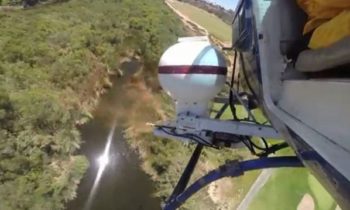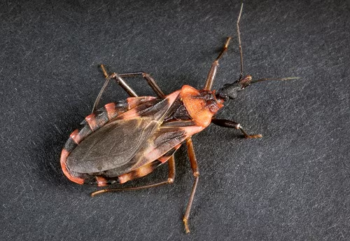They are called suicide gatekeepers. And there are more than 5,000 of them in San Diego.
The suicide gatekeepers are teachers, police officers, social workers, school counselors and administrators and high school and college students.
How can you become one of them?
By taking a one-hour class that teaches you three simple steps that could help you save someone who might be thinking about ending his life. The trainings are free and open to everyone.
Commonly referred to as the CPR of suicide prevention, the Question, Persuade and Refer (QPR) trainings teach people how to approach someone who might be contemplating suicide, how to offer hope and help someone in a suicide crisis.
“In order for us to be an effective gatekeeper, we have to be comfortable asking questions,” Leon Altamirano, Psy.D. told a group at a QPR training last week at San Diego Mesa College. “Most people don’t know how to ask, don’t know what to ask or are afraid to ask.”
Altamirano is a QPR certified gatekeeper instructor. He and up to 40 other trained instructors have been teaching the County-funded classes in schools, churches, police departments and many other settings. Since the classes began two years ago, more than 5,000 people have been trained as suicide gatekeepers.
At San Diego Mesa College, Altamirano began by giving the 12 participants resource numbers and websites, including the County’s It’s Up to Us and the Access and Crisis Line—(888) 724-7240 and 2-1-1.
He then transitioned into debunking several myths about suicide by asking participants to answer “truth” or “false” to 10 statements about suicide, such as:
- No one can stop a suicide. It’s inevitable.
- Confronting a person about suicide will only make them angry and increase the risk of suicide.
- Suicidal people keep their plans to themselves.
- Parents are often unaware of their child’s suicidal behavior.
- Once a person decides to die by suicide, there is nothing anyone can do to stop them.
They are all false.
Altamirano then shared some national and local suicide statistics and told the group that in San Diego County one person dies by suicide every single day. Most of the 60 minutes were spent talking about the warning signs of suicide and what people should do when they hear someone talk about ending their life or suspect someone is contemplating suicide.
“All signs must be taken seriously,” Altamirano said. “We need to get involved. We have to ask the question.”
So what should you ask?
If a friend or a loved one is in need of help, ask if they are having thoughts of suicide.
“Be direct. Talking specifically about suicide does not cause it to happen or plant the idea,” said Alfredo Aguirre, director of County Behavioral Health Services. “Suicidal behavior is a call for help. Listen and don’t wait to take action. Stay with the person and lead them to get help.”
Direct is exactly what Dana Conard, 22, says she is going to be.
Her boyfriend’s father died by suicide and since then she has seen her boyfriend go through severe bouts of depression.
“I took the training because I wanted to know what to do,” said Conard after learning that survivors of suicide are at higher risk of ending their lives. “I’ve seen how his father’s suicide has affected my boyfriend. I know I’ll be more direct with him and encourage him to get therapy.”
The QPR trainings are organized by Community Health Improvement Partners, one of the County’s mental health partners that direct and administer the San Diego County Suicide Prevention Council.
There are two upcoming public QPR trainings:
October 8, 2013
6 p.m.
Turk Family Center
8804 Balboa Ave., San Diego 92123
RSVP to caroley@jfssd.org or (760) 889-5195
November 5, 2013
6:30 p.m.
Santee Library
9225 Carlton Hills Blvd. #17, Santee 92071
RSVP to Cherly.cosart@sdcounty.ca.gov or (619) 890-1408
Agencies and organizations can also host their own trainings but must have at least 10 participants. For more information, contact Elizabeth Vaughan of Community Health Improvement Partners at evaughan@sdchip.org or (858) 609-7971.





